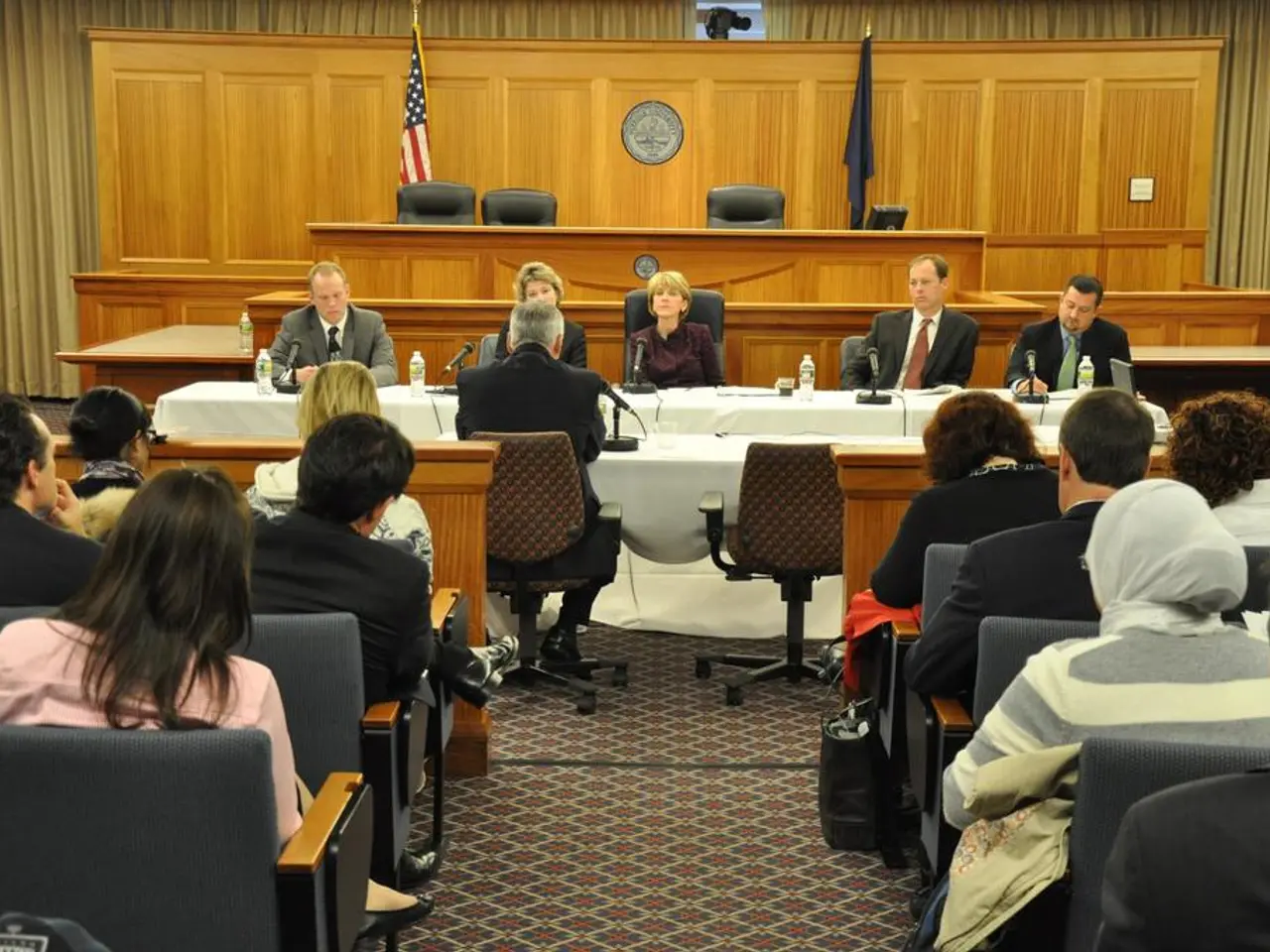EU remains committed to supporting new member states' accession and promoting peaceful dialogue in negotiations
In a significant move towards securing Ukraine's postwar defense architecture, a high-level meeting was recently held by the U.S. President, attended by leaders from France, Britain, Germany, Ukraine, the European Commission, NATO, Italy, Finland, and the White House. The focus of the discussion was on the U.S. and Ukraine actively pursuing security guarantees for Ukraine involving European-led military support.
The current negotiation positions indicate that the U.S. is willing to provide key enabling assets such as intelligence, surveillance, command and control, air defense, logistics, and operational protection. Ukraine, on the other hand, demands that these guarantees be concrete, legally binding, and multidimensional, including military, diplomatic, and legal aspects. President Zelenskyy remains open to a bilateral meeting with Putin, but Russia has so far avoided such talks.
Recent meetings have highlighted these efforts. Former U.S. President Donald Trump held separate discussions with Putin in Alaska and Zelenskyy and European leaders in Washington D.C. earlier in August 2025, raising hopes for a Russia-Ukraine bilateral summit. However, Putin remains evasive about meeting Zelenskyy.
U.S. Secretary of State Marco Rubio and Trump’s Ukraine envoy Keith Kellogg engaged with European and Ukrainian officials, including Ukraine’s Foreign Minister Andrii Sybiha, to discuss security guarantees focused on preventing future Russian aggression. Kellogg emphasized ongoing hard work to define these guarantees.
Senior U.S. officials have communicated to Europe a readiness to support a European-led force deployment in Ukraine, offering "strategic enablers" to back tens of thousands of European troops on the ground. This includes enabling and protecting European troops via U.S. air shield and ISR assets. European states have insisted that U.S. support is necessary for their troop deployment.
Russia’s Kremlin stance remains opposed to NATO country troops being part of any Ukrainian security framework, marking a key point of contention. Meanwhile, Russia continues hybrid warfare tactics against Europe and resists peace overtures until under stronger military pressure.
In other developments, Admiral Giuseppe Cavo Dragone, who chairs the NATO Military Committee, will organize a meeting of the Chiefs of Defense of 32 allied nations by videoconference tomorrow. The Chiefs of Defense of the Armed Forces of NATO member countries will meet by videoconference on Wednesday to discuss the conflict in Ukraine and the "progress of diplomatic efforts."
The war in Ukraine has resulted in tens of thousands of deaths on both sides and has seen large-scale aerial attacks by Russia on Ukrainian cities and infrastructure, as well as Ukrainian forces targeting military sites in Russian territory and the illegally annexed Crimean peninsula using drones. These conditions are considered unacceptable by Ukraine.
The EU expressed a desire to be present at the negotiating table, despite the possibility that future dialogues may not include Brussels. Today, a "coalition of volunteers" (around 30 countries, mostly European) met to discuss the same issues. The President of the European Council, António Costa, advocated for quadrilateral conversations that include the EU in discussions about the war in Ukraine.
Russia invaded Ukraine on February 24, 2022, citing the need to protect pro-Russian separatist minorities in the east and "denazify" Ukraine. Russia has rejected a prolonged ceasefire and demanded that Ukraine cede four regions (Donetsk, Lugansk, Kherson, and Zaporizhzhia) and the Crimean Peninsula, along with permanently renouncing NATO membership in exchange for ending the conflict.
The Pope has expressed hope for negotiations to end the war in Ukraine, while Brazilian diplomat Paulo Rangel reiterated support for Ukraine's accession to the EU and expressed solidarity in the upcoming negotiating framework. Donald Trump called President Vladimir Putin after the White House meeting and initiated preparations for a meeting between the Russian and Ukrainian heads of state. Trump suggested a trilateral meeting with the two Presidents and himself following the meeting between Putin and Zelenskyy.
These developments reflect ongoing diplomatic and strategic efforts primarily led by the U.S. and Europe to secure Ukraine’s postwar defense architecture despite Russian resistance. The hope remains that these efforts will lead to a peaceful resolution and lasting security for Ukraine.
Read also:
- Weekly happenings in the German Federal Parliament (Bundestag)
- Southwest region's most popular posts, accompanied by an inquiry:
- Discussion between Putin and Trump in Alaska could potentially overshadow Ukraine's concerns
- Massive 8.8 earthquake hits off the coast of Russia's Kamchatka Peninsula, prompting Japan to issue a tsunami alert.








